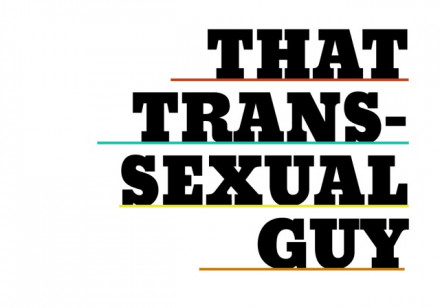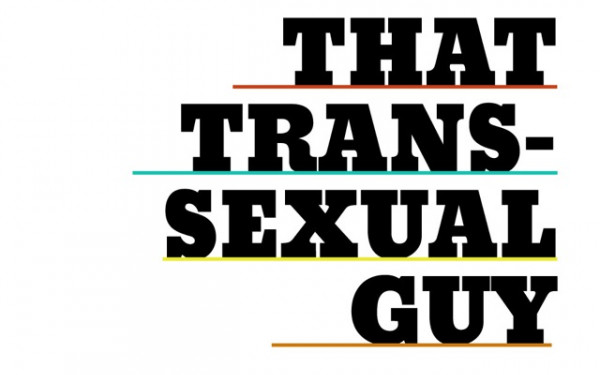An Interview With Gabrielle Bouchard of the 2110 Centre
“Is it okay to talk about my experience? What do you want to know?”
Gabrielle Bouchard is the peer support and trans advocacy coordinator at the 2110 Centre for Gender Advocacy. She has been working there for two years. She’s also studying part-time to get a Bachelor’s degree in women’s studies, with minors in philosophy and studies in sexuality. She keeps busy.
The day we met, her first day at the centre, she declared that I was handsome and we’ve been close friends ever since. She’s watched me try to break my addiction to coffee just as often as I’ve watched her run around, doing 10 different things at once.
She’s going to be the person who drives me to my surgeon on Feb. 21. We’ve joked, only half-kidding, that we ought to get red square tattoos together, as we were both active in the Quebec student strike with the Women’s Studies Student Association at Concordia in 2012.
At work, she doesn’t talk about herself much, instead spending her time listening to anyone who walks in the door.
“I have difficulty talking about my experiences as anything of value because it’s only my experience—unless I am able to contextualize my [story],” she said.
“How statistically important is it? What’s the line between voyeurism and worthy information? Do they need to know how I have sex? If I’ve had the operation or not? My vagina, if I have one, if it’s fuckable? That realm, for me, is problematic to talk about.”
Trans people of all gender expressions and backgrounds come to visit her, from those who had completely accepting families to those who experience severe harassment on a daily basis.
She and I often have discussions on what it is to be openly transsexual and how to balance that with the rest of your life.
“I don’t want the bias of my experience to be the only factor in my activism. I don’t want to be an activist for whatever identity I have, because I’ve been transitioning for long enough to know that [my identity swings] from one month to another, one year to another.”
She was only able to find her identity after leaving the small northern Quebec town she had previously lived in.
“I started being able to understand who I was when I started having the vocabulary to go with it. So for the longest time I thought that I was gay, not because of effeminacy, just because it’s the only language I knew. It was only when I came to Montreal and started hearing ‘transgender,’ ‘transsexual,’ ‘drag queen’ and ‘genderfuck’ that I was able to make sense of myself.”
It is this intimate firsthand knowledge that enables her to be a good listener to those seeking support, not counselling, from a peer. She knows what she’s talking about when she hears complaints about transphobia.
“When I transitioned, the glass ceiling went from below my feet to over my head. At the moment that I wanted to jump higher, go farther, I got nosebleeds because my face would hit the ceiling.
“And during those last moments [at my previous job], I had to go from the 26th floor to the food court on the main floor to go pee because people were not comfortable with me going to the women’s bathroom.”
She grins at me briefly before changing the topic to dill pickles.
“When I was on one particular testosterone blocker, I had this uncontrollable urge to eat pickles. I would eat pickles all day in my office and it was hugely satisfying. I went through jars of them!”
As the trans health coordinator, many trans people (and occasionally, parents!) come to her for support. She needs a solid sense of self to keep her head.
“Every single experience that I lived made me who I am today; that includes my transition with everything good and bad that came with that. And I wouldn’t change a single thing.”
I asked her what the Montreal trans community needed in terms of support.
“I’d change that to communities!” she responded. She says treating the trans communities as a “we,” as a “monolithic identity with very specific demands in a certain legal format” is very problematic.
“I could say a million things about what the trans communities need, then I could problematize every single one of them. I could say that they’re all on their way.
“If I had to say one thing, [it would be that] we need the right to choose. And if I want to be radical, I would say that we need people to leave us the frack alone and stop caring if I have facial hair or not, a penis or not, boobs or not.”
I chuckled in agreement. That, I could appreciate. It would be nice to not be stared at all the time. She, on a rant, continued.
“Stop seeing me as this potato head bonhomme, a trans-thing. You can dress up Ken or Barbie to look [how you want them to look]. We don’t need anything, just people letting us be.”
There are plenty of divides in the trans communities: language, religion, region, class, race, age, ability—you name it, it’s there. But Gabrielle is all about inclusivity, even more so in the winter, when many trans women cannot get access to women’s shelters because the workers ask intrusive questions.
It is more unsafe for trans women to be in men’s shelters than it is to be on the street, she said.
“So if I won tons of money, I would [create] a multi-service trans-oriented centre. I would have a place where you could get referrals, a place that would be safe, a place where you could sleep if you had no place to go. A place where meat-eaters and vegans would share the same kitchen.
“No matter how big your operation is, if you decide to have one, you could rebuild your strength there at that place… It would be hosted by the league of unicorns.”




